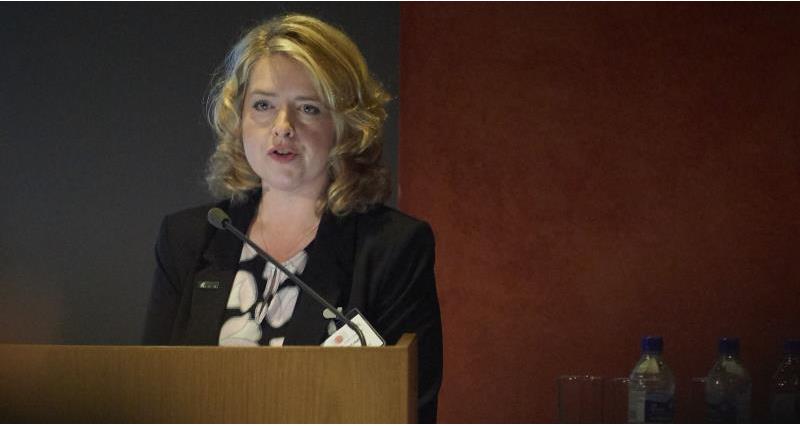She writes:
In May 2016 Lord Jim O’Neill published his recommendations for a global response to the developing threat of antibiotic resistance. Various recommendations were made for both developing and developed economies with specific challenges directed to consumers, medics, vets, farmers and pharmaceutical companies.
David Cameron, the UK Prime Minister of the time, had already indicated the UK government’s full support for the report conclusions, so his response in November 2016, with a commitment for the UK to reduce antibiotic use in livestock and fish farmed for food to a multi-species average of 50 mg/kg by 2018 came as no surprise.
RUMA had been gearing up to this, pulling together key farmers and vets representing each sector to create the RUMA Target Task Force (TTF), the Independent Science Group (ISG) and within the NFU, the Animal Health and Welfare team upped our engagement with the National Boards to make sure that everyone was ‘bought in’.
The RUMA Conference, in association with the VMD, on Friday 27 Oct, gave us an opportunity to showcase the industry’s efforts and to find out from the VMD how we were progressing against the 50mg/kg 2018 target. It was a fantastic event.

The VMD had kept its powder dry; only releasing the details of 2016 UK veterinary antibiotic resistance and sales surveillance on the morning of the event. The headline from that was that the industry had met, and exceeded the government’s challenge, two years early.
The UK farmed animal sector had reduced antibiotic use by a massive 27% and was sitting at a multi-species average of 45mg/kg based on the 2016 figures. Sales of highest priority critically important antibiotics (HP-CIAs) were also reduced in 2016 from an already low level. Sales of 3rd/4th generation cephalosporins reduced by 12% to 0.15 mg/kg, fluoroquinolones reduced by 29% to 0.24 mg/kg, and colistin reduced by 83% to 0.02 mg/kg, which is considerably below the 1 mg/kg maximum target for colistin recommended by the European Medicines Agency.
Professor Paul Cosford, Director of Public Health England, commented that if the human health side had achieved the farming sector’s reductions, we wouldn’t be concerned about resistance to the extent we are. Praise indeed, considering the struggles we’ve had to demonstrate to the medical community that our responsible use principles are indeed sensible and working.
The ISG took the after lunch slot with an open ‘ask the expert’ session. In my capacity as RUMA Deputy Chairman, I have the honour of chairing the ISG, so led this session. My fears of a tumbleweed-filled hour were unfounded. Questions from the floor challenged animal welfare assumptions, retailer responsibilities, labelling – the general consensus was that ‘antibiotic-free labelling’ should not be encouraged as it was misleading and encouraged the converse and flawed view that other food contained antibiotics - prescribing challenges, vet/farmer relationships and pharmaceutical investment policies.
The third and final session showcased the TTF’s work. It began with a short film clip introducing the TTF – a ground-breaking example of the positive power that collaboration and openness can bring to a problem. Each sector brought forward its commitment to refine, reduce and replace antibiotics – including better benchmarking, concerted preventative health care and responsible prescribing and usage.
The conference atmosphere by this time was buzzing and the groundswell of positivity was unlike any I’ve ever experienced. As a RUMA officeholder, I felt quite emotional about the ‘can do attitudes’ and the sense of pride for what we, as an industry, had achieved so far.
But success can be short-lived and our challenge now is to get on with the next stages: the TTF commitments must be delivered and the successes already seen must be added to. The ISG will provide the scientific rigour to RUMA’s priorities and could help to identify science and research gaps so that we can genuinely resolve future challenges with evidence and insight.
RUMA celebrated its 20th anniversary at the conference – we’ve achieved a lot in those 20 years – the very fact that we’ve staved off any antibiotic bans so far, and have very little evidence of resistance through the food chain, is testament to that. But it’s not just down to RUMA, it’s the engagement and willingness of everyone involved in producing our food, which is making the difference. Here’s to the next 20 years!
